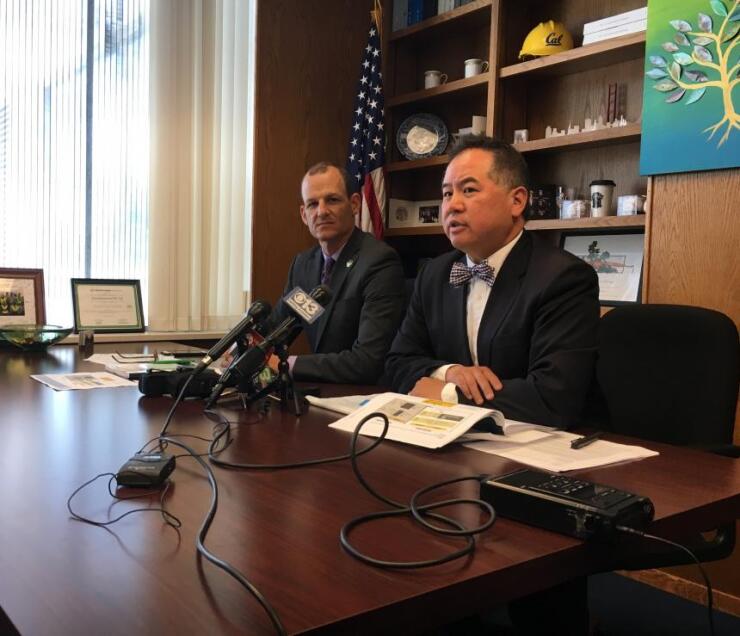LOS ANGELES — Attempts by the California agency that collects one-third of the state’s tax revenues to self-correct don’t go far enough to resolve entrenched issues, according to an economist for the state's Legislative Analyst’s Office.
The Board of Equalization, which collects $60 billion in sales and use taxes, fuel taxes, and other fees, has come under fire in recent months following revelations in an
The audit was a follow-up to one conducted by Controller Betty Yee in 2015 that found the board had misallocated $47.5 million of tax revenue. The DOF’s audit said an elected Board of Equalization member bolstered his own staff by “redirecting” civil servants to work outreach events. In one example, 113 office workers were put to work as parking and registration attendants at a “Connecting Women to Power” conference.

During testimony before the Assembly Tax Committee Wednesday, board member Diane Harkey said the large conferences enable her and board member Jerome Horton — the long-time member who has come under the most fire — to distribute information to business owners in their heavily-populated Southern California districts.
The board recently voted to temporarily suspend large-scale conferences until it can develop a new policy.
“We appreciate [board members] expressions of cooperation and that everyone wants to do what they can,” said Seth Kerstein, an economist for the Legislative Analyst’s Office, which provides fiscal and policy advice to the state legislature.
But, “in our view, the issues are so fundamental that the most promising way to get BOE back on track would be make major statutory changes or constitutional changes to board duties,” Kerstein told the committee.
While the Department of Finance has presented the Legislature with new concerns, the fundamental issue of board members’ conflicting roles is not new, said Kerstein, who cited an analysis seeking reforms that was produced by the LAO’s office during the 1949-50 budget process.
The five-member board is composed of four members elected by district, plus the state's elected controller.
The board’s disparate duties are: to run the sales and tax use board and rule on tax appeals for the taxes they administer as well as for the Franchise Tax Board, which collects state personal income taxes. The four board members who represent districts also view themselves as advocates for the constituents who elected them.
“Under the current structure, BOE members are administrators, arbiters and advocates; it is extremely difficult, if not impossible, for a single entity to perform all of the functions effectively,” Kerstein said.
Gov. Jerry Brown asked state prosecutors in April to investigate allegations that BOE employees misused state resources – and that the Legislature draft new laws to address “serious problems” uncovered in the audits.
Dan Carrigg, legislative director for the League of California Cities, cautioned lawmakers against making any changes that might impact the efficiency of the operation because cities rely heavily on the sales, property and transfer taxes collected by the tax board.
“I think we do need reform,” said Assemblyman Jay Obernolte, R-Big Bear, “but, I don’t want to throw the baby out with the bathwater.”
In addition to the potential conflicts of the board acting both as judiciary in the appeals process and advocates for constituents, lawmakers also raised concerns over the three-year average length it takes to see resolution on appeals to the tax board.
“I think we need to make sure that people are not just getting a hearing, but in a speedy way,” said Assemblyman Phil Ting, R-San Francisco, who chairs the Assembly Tax Committee.
Assemblyman Sebastian Ridley-Thomas, D-Los Angeles, who authored a reform bill, cautioned lawmakers in his testimony from setting arbitrary deadlines to accomplish reforms that he said need to be well thought out. Some legislation has been contemplated in trailer bills to the state budget.
A line item was added to the upcoming state budget for appropriations to the tax board.
Ridley-Thomas’ Assembly Bill 1201 would make that an annual event. It would also require the secretary to submit a report to the Legislature summarizing the performance of work for or related to any member of the board by specified staff and the use of specified funding or other resources by a member of the board. It would also create an Office of Inspector General within the tax board.





